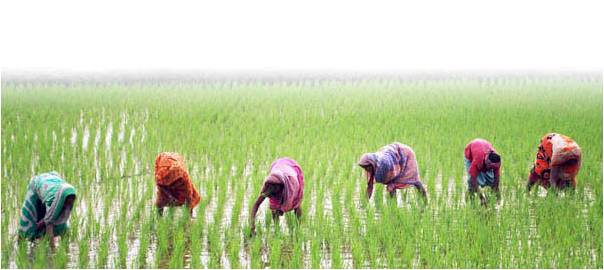Women play an important role in the global rice sector.
Women play an important role in the global rice sector as both paid and unpaid family labor. In many parts of Asia, women contribute at least half of the total labor input in rice production, performing backbreaking tasks such as transplanting and weeding. After harvest, it is usually the women who take care of seed storage and processing of rice (drying, milling) for home consumption.
In Africa, women undertake much of the work in traditional rainfed and upland rice production systems and play an important role in the rice value chain after harvest. Yet, these women face many constraints because of the prevalence of gender stereotypes and social restrictions that hamper their access to technical knowledge and technologies. It is widely acknowledged that increased participation of women in agricultural research for development and extension will accelerate the realization of development goals, such as reducing poverty and increasing food security.
The Global Rice Science Partnership‘s (GRiSP) gender strategy aims to empower women and accelerate the delivery of its development objectives. The term “empowerment” integrates the strengthened role of women in the design, experimentation, and evaluation of agricultural research for development, as well as improved access to resources (e.g., production inputs, knowledge, and improved technologies) and control over output (e.g., harvested rice, processed rice, and other products). Examples of early success stories, taken from various projects and activities that are part of GRiSP, demonstrate how well-targeted activities and product development strengthen the role of women in the rice sector and improve gender equity.








